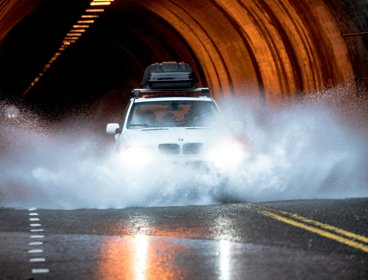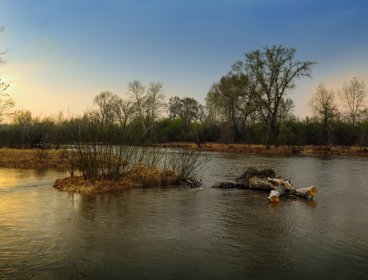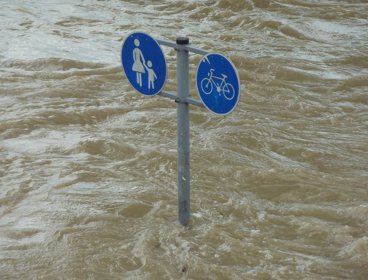Dr Ewan Woodley is a Lecturer in Geography at the University of Exeter. His research and academic interests are in environmental risk and resilience with a particular focus on ways of engaging communities in scientific and societal debates on natural & anthropogenic hazards. In order to work effectively in this area, Ewan’s work bridges relevant aspects of physical and human geography and involves collaboration with a wide range of non-academic partners, including local government, practitioners, and communities.
What do you feel are the main benefits of engaging the public in climate science?
This question starts off by raising three controversial, but quite common, assumptions that will be challenged throughout this article. Firstly, it establishes a hierarchy, sending the signal that ‘expert’ knowledge is valued and uncontested, ready to be imparted to an unknowledgeable audience who have little to contribute to an environmental debate. Secondly, there is the assumption that ‘the public’ represents a single-minded body of people who have the same principles, attitudes and behaviours. Thirdly, implicit within the statement is the assumption that people need to be, can be, or even want to be engaged with climate science. These examples illustrate just some of the challenges of engaging people meaningfully in scientific debates; however, in order to address the myriad of threats presented by anthropogenic climate change, we need to radically rethink the way in which knowledge is constructed, valued, governed and consumed within society.
Could you briefly outline some of the methods that can be used in order to engage publics?
A traditional view of communication assumes that the attitudes and behaviours of ‘unknowledgeable’ people can be transformed through exposure to information derived from a subject expert. This approach is often ineffective as a whole host of barriers to behaviour change emerge, from social trends to political or economic beliefs. Broadly speaking, two dominant social science approaches exist for understanding attitudes to risk and these are termed the social-psychological and socio-cultural perspectives. The former places great emphasis on how we think and behave as individuals and generally seeks to collect large, representative quantitative datasets on which statistical analyses may be performed. The latter approach focuses on the fact that as members of communities, we adopt shared ‘social practices’ that are historically embedded and learned through social interactions. In this way, researchers utilise qualitative data that are closely related to people’s situational context and are flexible in allowing participants to guide the research.
What methods do you feel are the most successful, and why?
Neither of the above approaches is better or worse than the other – they are simply different and should be chosen according to the nature of a research question. My research adheres to the socio-cultural perspective on risk as it values the importance of shared interactions at the community scale. A specific method adopted in my research is ‘radical scientific method’, also known as the co-production of knowledge. This approach gets away from the idea of an ‘expert’ and ‘lay person’ by appreciating that all forms of knowledge on an environmental issue can hold value and should be respected on an equal footing. In so doing, it allows academics, practitioners, and publics to bring together specialist and local knowledge on an issue such as flooding to maximise the effectiveness of resulting action. Working at the community scale allows people to explore and give meaning to how the potential impacts of a global threat such as climate change might impact upon their home town or village. There are also good reasons why work at the community scale should be promoted. A reduction in funding to local governments has left fewer resources to support communities in times of crisis (e.g. a flood event). Re-distributing knowledges through co-production introduces a fresh sense of democracy and may empower communities to enable greater adaption and resilience to hazards..jpg)
Do you have a case study where the communication of climate science has been successful?
Co-production of knowledge has been used by a range of researchers to address environmental problems. Myself and a colleague, Professor Stewart Barr, collaborated with Exmoor National Park Authority to address the problem of flooding on the River Barle in the town of Dulverton. This workshop was successful in bringing together residents, landowners & managers, representatives from the public sector, academics, and practitioners to develop knowledges on the causes and impacts of flooding and ways in which the community could become more resilient to this environmental threat. One of the key issues that surround co- production is the scale of community at which it can be employed effectively. This spurred on a current community flood project that we are running in a larger town (Crediton) in Devon. Whilst these projects have been an excellent means of engaging with communities to better understand place-based problems, one of the major challenges concerns the transition from co-producing knowledges to co-managing environmental hazards.
How do you know if your engagement has been successful? Are there any ways of measuring this?
Measuring the success of engaging with communities is complex, but there are both tangible and intangible impacts that we seek to achieve, many of which long outlast the length of a funded project. The benefit of working with a wide range of people is that new knowledges and greater understanding about an environmental threat are constructed for a specific place. The cumulative efforts of a community can be gauged through a change in both individual behaviour and shared practices, such as installing low-cost flood protection for a house or acting when a flood warning occurs, the development of a community resource such as a local flood resilience plan, or wider recommendations and adoption of practice by local government or practitioners.
What do you feel are the main challenges or barriers of communicating climate science to publics?
With climate change potentially threatening our way of life, we tend to assume that it is everyone’s duty to take an interest and act in a constructive and coordinated manner to tackle this problem. In exploring why many people express disinterest, or hostility, towards the phenomenon of anthropogenic climate change, it is necessary to think about several important barriers to engagement. Firstly, climate change is a slow onset hazard, and whilst it may be associated with common natural events (storms, flooding), to many it remains invisible, its impacts hard to imagine. Secondly, the uncertainty and complexities surrounding our knowledge of the climate system have opened doors to sceptics and continue to fuel political and economic debates about the accuracy and reputability of science and scientists. Lastly, the way we (in a developed westernised lifestyle) live our lives with an increasing addiction to consumption of goods and services is unsustainable in the long term and contradicts the actions necessary to mitigate atmospheric warming. In short, a myriad of reasons (social, economic, political, cultural, historical) exist as to why people do not wish to engage constructively with the climate change debate.
Are you aware of any disadvantages of communicating climate science to publics?
It can go wrong! Bombarding people with images of potential cataclysmic events and dystopian landscapes promotes feelings of helplessness, anxiety, or simply aggravation and disinterest. In the UK, Government devolution of responsibility for environmental matters to the individual, and nudges to promote pro-environmental behaviour, detract from the potential benefits of collective reasoning and community-based approaches to promote resilience. Examining the likely increases in environmental risks through climate change, and the increasing financial cost of these events, it is clear that a transformation is required in the way in which hazards are governed through effective and bottom-up modes of engaging publics.
How is the uncertainty inherent in climate science communicated to ensure that it is understood by publics?
We live in a world where we crave certainty, yet uncertainty is an important component of climate science, derived from gaps in our knowledge & understanding of physical processes. Despite being a normal part of scientific endeavour, uncertainty often creates doubt over the quality and usefulness of data and even results in allegations of ineptitude surrounding the scientists responsible. We all perceive and understand risk in different ways, which makes the challenge of communicating uncertainty even more problematic. Significant emphasis has been placed on the visual representation of uncertainty and also the language that is used to discuss the likelihood of scenarios being realised. However, one of the biggest challenges facing science communicators is a need to appreciate appropriate ways to give place-based meaning to projections of risks from climate change. The use of deliberative methods goes beyond merely providing such information to individuals on a plate and demonstrates the potential for engaging people with issues of uncertainty in climate science.
Key Words
Co-production
The sharing of knowledge production between similar or disparate parties e.g. experts and lay people.
Social practices
The everyday routines and rituals that people perform habitually, or regularly.
Anthropogenic
Environmental pollution and pollutants derived from human activity.
Lesson Ideas
Students design a questionnaire and possible interview questions based around ONE of three everyday practices either: recycling, commuting, or family shopping habits. Students could then conduct the interview, or questionnaire in pairs taking note of the answers. If time allows, these answers can be analysed and placed into themes under heading of social, economic, political or cultural effects.
Students take part in a workshop on climate change resilience in their community. In groups, students should each adopt the role of: an academic, resident, landowner, or business representative in their local community. As part of this workshop, students discuss their various perspectives and work towards finding solutions, and changes to their everyday practices that will help their communities’ resilience to climate change.
Links
The Dulverton Report: “Flooding and the River Barle catchment” by Professor Stuart Barr and Dr Ewan Woodley
Ewan was interviewed in August 2015




